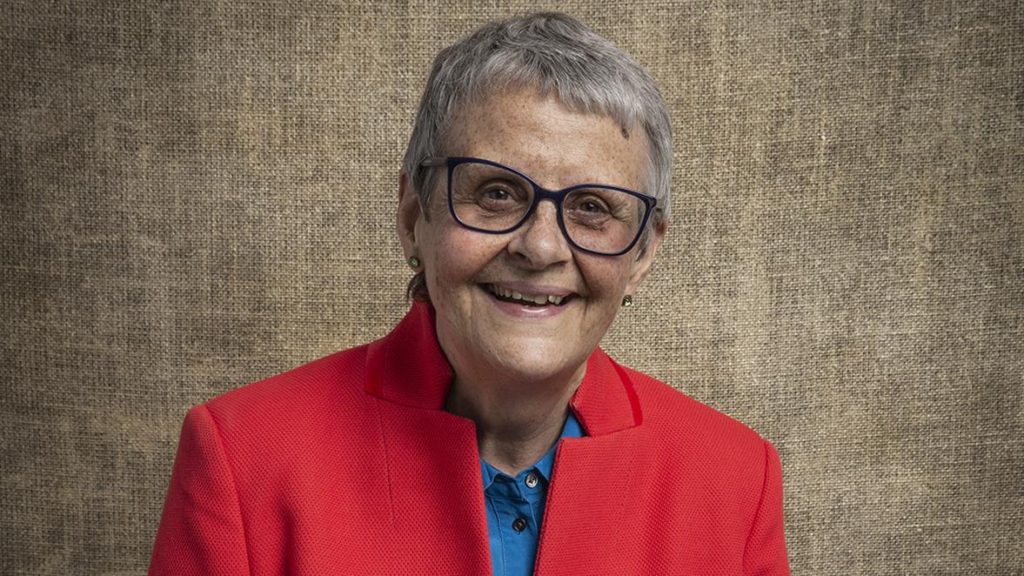How Wendy Mitchell Stays One Step Ahead of Dementia Everyday
Wendy Mitchell was diagnosed with early-onset Dementia in 2014 and now spreads awareness about it. She shares her solutions for living with Dementia.
Wendy Mitchell’s bestselling book co-written with journalist Anna Wharton, Somebody I Used To Know, begins with a fall. Mitchell is out on a run, in the hope of clearing the fog that seems to be settling on her mind and the unexplained fatigue. She suddenly falls, despite no bumps or obstructions in the path. It starts a chain of checkups and tests to figure out what’s going wrong until she’s diagnosed with Early Onset Alzheimer’s. It’s a shock for Mitchell, an active administrator at the British National Health Service. She’s a woman who has the nursing roster at work memorized and is everyone’s go-to person for problem-solving. And she is only 58 at that time.
Bizarrely, the diagnosis was also a relief, Mitchell told Silver Talkies during a live talk from her home in UK. The memory lapses had continued, with Mitchell trying to stay on top of things with Post-It notes at work and reminders scribbled all over. “It gave a name to what was happening to me; actually, put an end to all the uncertainties, all the ifs, buts and maybes, and I could continue to live my life.”
Mitchell, now 65, spreads awareness about Dementia across the world. “So often when people hear the word dementia, they go into a state of depression, believing it to be the end. And that’s what happened to me because nobody told me any different. Due to the stigma associated with Dementia, people forget there’s a beginning and a middle. So much life still to be lived, albeit differently. And with help and support, I was determined to continue living life and having adventures no matter what other people thought.”
Dementia hasn’t affected Mitchell’s ability with words, and she has used that to her advantage. She begins each morning playing Words with Friends on her iPad. She stays in touch with the outside world through her social media accounts. Twitter is where she can have “silent conversations” with the world each time she feels lonely. Mitchell writes a blog called Which me am I today. She calls it her memory journal, in which she notes down all the feelings, triumphs and challenges she has had. “I can type words quicker than I can think and speak them because that part of my brain hasn’t been affected yet,” she tells us, showing a sheaf of papers where she has written down the words she needs to speak.
Mitchell asserts that everyone’s experience of Dementia is different. For instance, some people can still cook and feel hunger, which she cannot. In her daily endeavour to outmanoeuvre Dementia, Mitchell has incorporated simple solutions that, for now, work for her. She shared some of them with us.
When the noise and sounds of the city started affecting her, Mitchell, who lives alone, moved to a quieter village. But she had to ensure her house looked different from the others and didn’t accidentally walk into a neighbour’s house. A DIY person at heart, Mitchell stuck two forget-me-not tiles on each side of her front door to make it known to herself that this house was hers.
Simple but innovative ideas continue throughout Mitchell’s home and life. For example, her tiny kitchen had two doors that confused her as she couldn’t remember where they lead to. “My solution was to get my screwdriver out and take the doors down. So I can now see exactly where each door leads to without getting confused.”
Vision is often affected in some people with Dementia, says Mitchell, as the brain doesn’t interpret the information correctly. For example, going down the stairs can be challenging if the edge isn’t marked because it can look like a slide or an escalator. Likewise, mats in doorways that are black can look like a hole in the floor. Wall-mounted television sets, when switched off, can seem like a gaping black hole. A Bed & Breakfast that Mitchell visits put a red pillowcase over the TV – a simple solution to block out the black.
‘The easiest way to find out if a room or area is Dementia friendly is to take a black and white photograph. If the shades of grey, the contrasts, are marked, you’ve probably got it right.”
Mitchell writes in her book about how she loved to bake. But she can barely feel hunger now and has to set an alarm to remind herself to eat. She suggests that if a person with Dementia is sitting with the plate of food untouched, there could be many reasons.
The food could be on a plate of the wrong colour – like white rice on a white plate; or it could be food that looks complicated. “I find I can’t cut through now if the plate is of the wrong shape. So I prefer to eat out of a bowl because with a plate, everything just gets shuffled off, and I make a mess.”
One of the most important points she makes is to allow a person with Dementia to do things as long as they can. “For the kindest reasons in the world, people want to wrap us up in cotton wool and start doing everything for us. But if we don’t do something day after day after day, we forget!” Mitchell’s two very supportive daughters would help her put on her coat before leaving the house. “Then I began to realize when they weren’t there, I was struggling to put it on.” That’s when she asked her daughters to stop. Instead, Mitchell says, however hard it may be, families should enable people with Dementia to stay independent as long as possible. “It gives us the feeling that we can achieve something because Dementia strips away so much from us.”
Like many others, Mitchell took time to accept her diagnosis. July 31, 2014 is embedded in her mind as the day she was diagnosed with Young Onset Alzheimer’s. Mitchell’s book juxtaposes her life with memories of the person she was. As she loses her ability to cook and her job at the NHS, she struggles to understand and accept her condition. Apart from her determination to not let Dementia take over, her involvement with the Alzheimer’s Society, spreading awareness about it and meeting others with Dementia is what slowly turns things around.
Mitchell says support groups always help. “Never be alone with Dementia because it’s a very lonely place. Find other people that are going through what you’re going through.” She insists it’s essential for caregivers too. “Look after yourselves because otherwise, you can’t look after us.”
You can find the complete talk with Wendy Mitchell for Silver Talkies Live here.
To know more about Dementia and associated resources in India, see the links below:
Comments
You may like to read:

Health and wellness
Five Lifestyle Changes To Ease Bladder Control

jessica smith
5 mins read

Health and wellness
Five things to keep in mind when considering organ donation

sunayana singh, ceo of organ india, an initiative of the parashar foundation
3 mins read

Health and wellness
How NURA Uses AI-Enabled Screening to make a difference in Preventive Healthcare

Silver Talkies
4 mins read



Post a comment